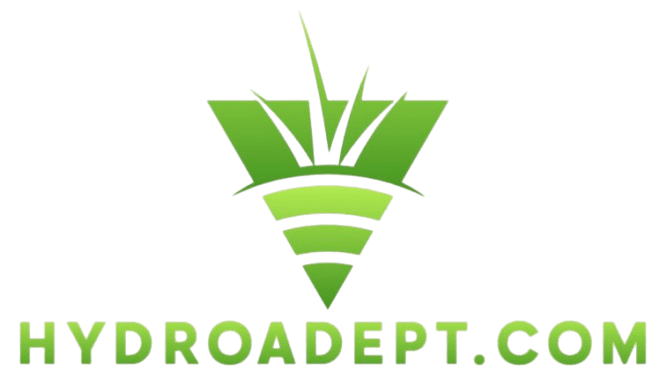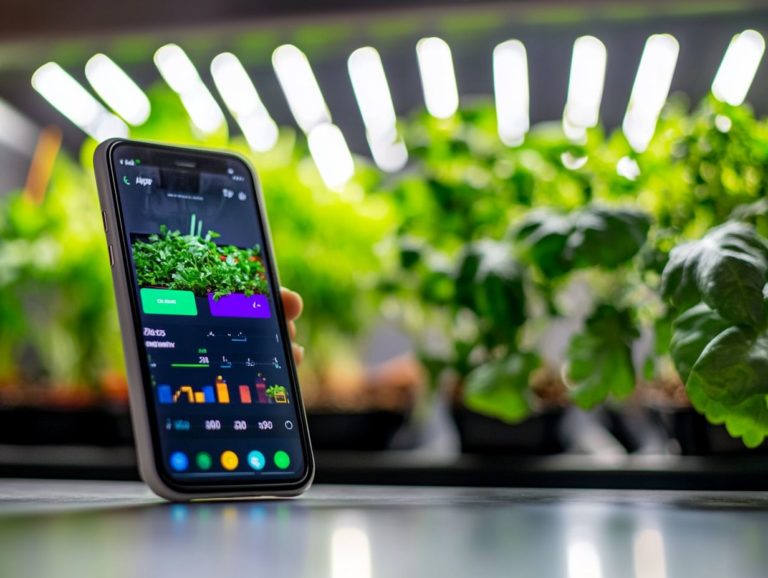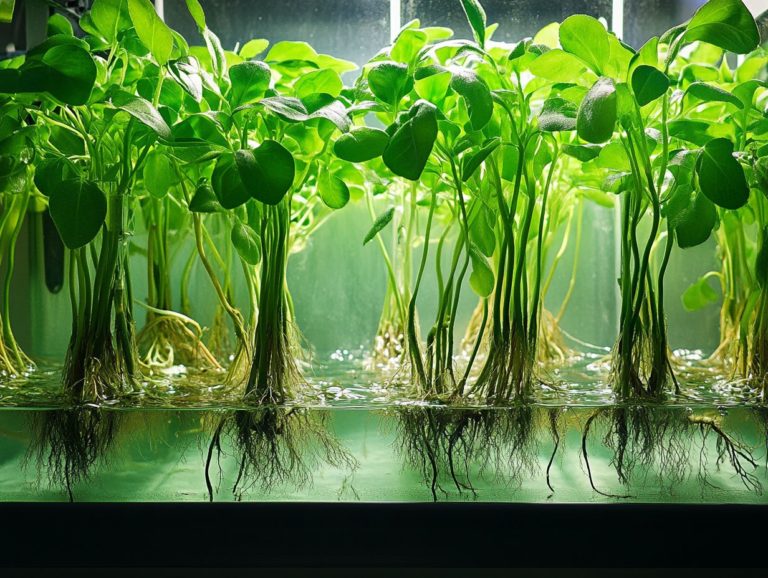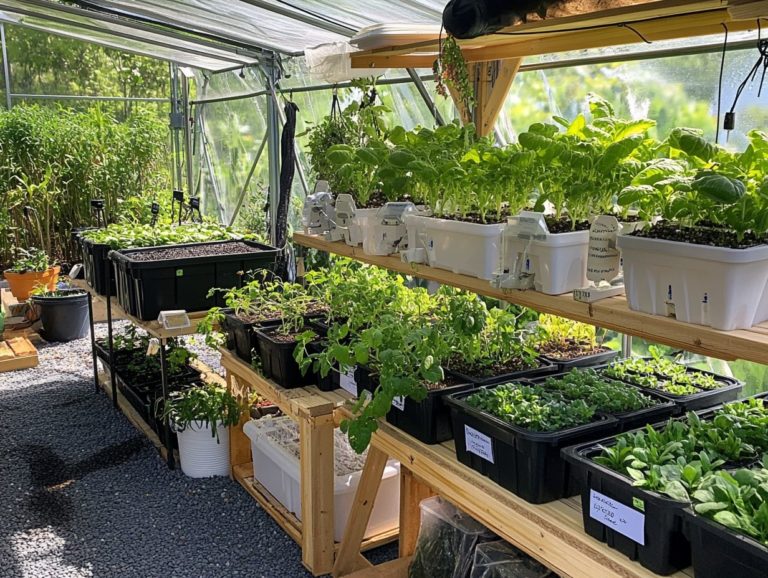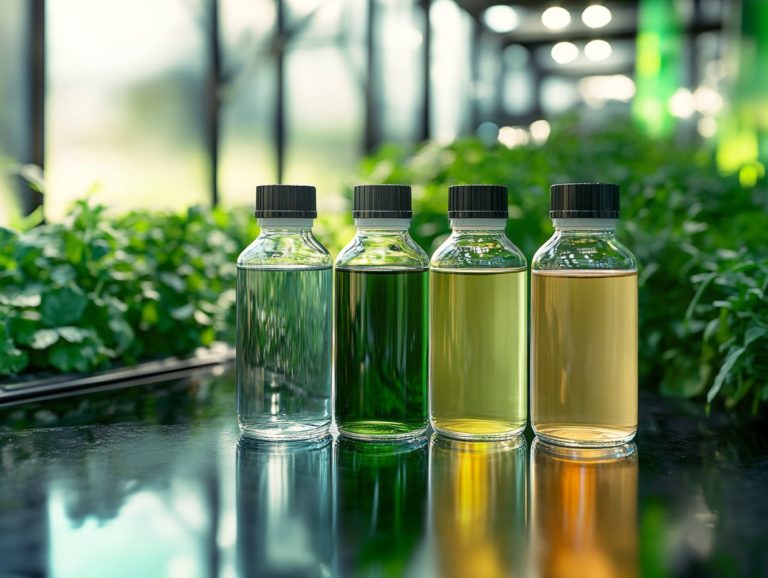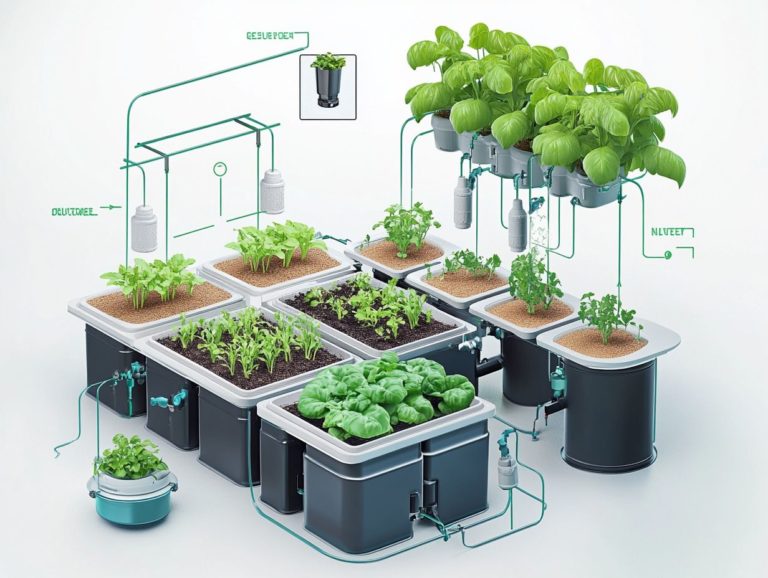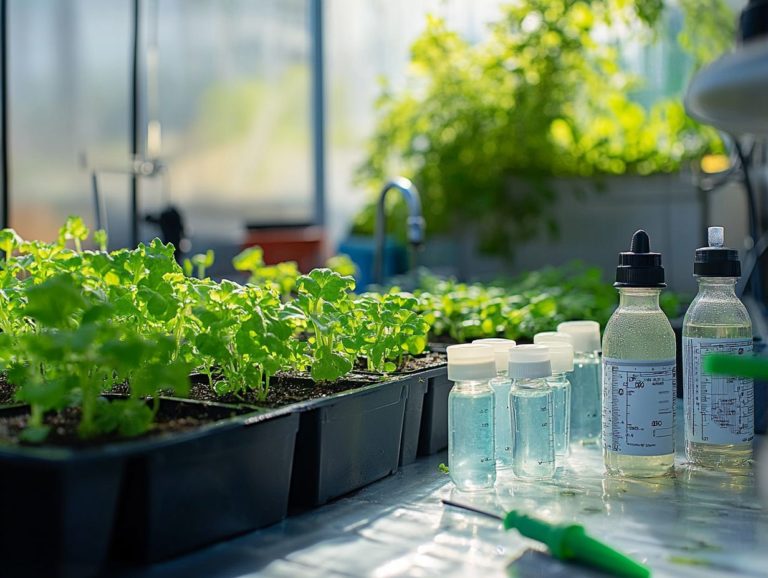The Role of Micronutrients in Hydroponics
Hydroponics has emerged as a revolutionary method for growing plants without soil, captivating gardeners and farmers alike with its innovative approach.
This article explains what micronutrients are. It discusses their significance in hydroponic systems, common deficiencies, and strategies for maintaining the right nutrient balance.
Unlock the secrets to growing lush, healthy plants with hydroponics!
Contents
- Key Takeaways:
- The Importance of Micronutrients in Hydroponics
- The Role of Micronutrients in Plant Growth
- Common Micronutrient Deficiencies in Hydroponic Systems
- How to Ensure Adequate Micronutrient Levels in Hydroponic Systems
- Frequently Asked Questions
- What are the main micronutrients needed for hydroponic plant growth?
- How do I ensure my hydroponic plants receive enough micronutrients?
- Can I supplement micronutrients in my hydroponic system?
- What are some signs of micronutrient deficiencies in hydroponic plants?
- Do different plants require different levels of micronutrients in hydroponics?
Key Takeaways:
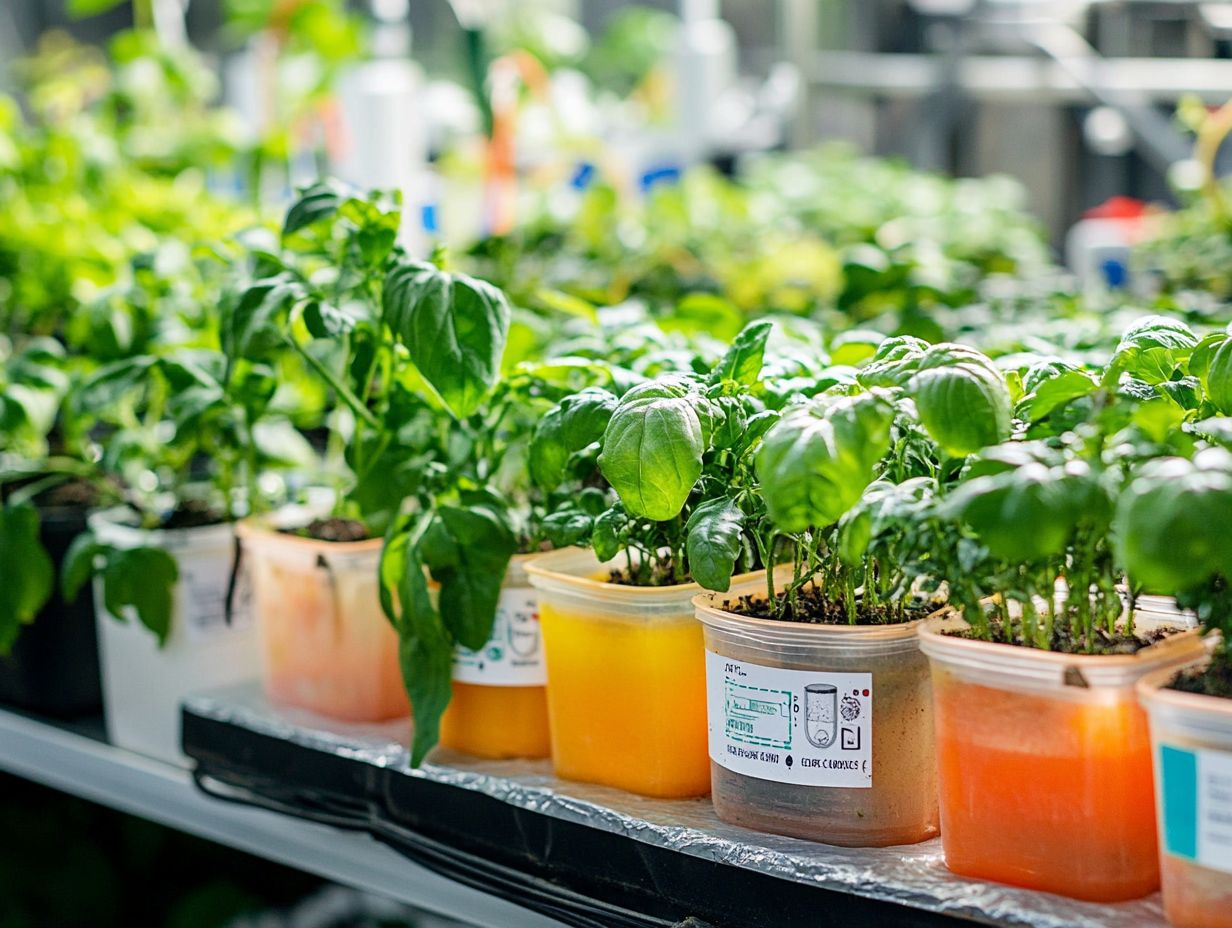
- Micronutrients are tiny nutrients essential for healthy plant growth in hydroponics, playing a crucial role in various development processes.
- Identifying and addressing micronutrient deficiencies is crucial for maintaining optimal plant health in hydroponic systems.
- Proper management of nutrient levels is key to ensuring adequate micronutrient availability, promoting optimal plant growth and yield.
What is Hydroponics and Why is it Popular?
Hydroponics stands as a revolutionary agricultural practice that gives you the power to grow plants efficiently without the need for soil. By utilizing water mixed with nutrients, you can maximize water efficiency and achieve optimal yields.
As urban farming gains traction, hydroponic gardening emerges as a sustainable solution tailored to the demands of modern society, particularly within commercial greenhouses where space is at a premium. This growing method allows you to cultivate a diverse array of plants while fostering environmentally friendly practices that enhance food security and promote resource conservation.
You can grow everything from leafy greens like lettuce and spinach to aromatic herbs such as basil and mint, all thriving in nutrient-rich water. Statistically, this method consumes up to 90% less water compared to traditional agriculture, making it an appealing alternative in light of global water scarcity concerns.
Since plants flourish in controlled environments, the necessity for pesticides chemicals used to kill pests that can harm plants diminishes significantly, resulting in healthier produce.
This efficient cultivation process not only boosts your crop yields but also encourages a transition toward more sustainable agricultural practices, aligning perfectly with society’s increasing appetite for local and fresh food sources.
The Importance of Micronutrients in Hydroponics
Micronutrients are vital to the health and vitality of your hydroponic plants, influencing everything from nutrient balance to overall growth. In hydroponic systems, these trace minerals are critical for numerous physiological functions, ensuring that your plants receive the necessary nutrition to thrive, especially during crucial growth phases such as the vegetative stage.
Start your hydroponic journey today and experience the joy of fresh, home-grown produce!
What are Micronutrients and Why are They Essential?
Micronutrients are essential nutrients that your plants need in precise amounts. They play a critical role in various biochemical processes and overall health.
In hydroponics, balancing these micronutrients such as nitrogen, phosphorus, potassium, calcium, magnesium, and trace minerals like iron and manganese is vital for plant growth and impressive yields.
These micronutrients are crucial for numerous physiological functions. For example, iron is essential for synthesizing chlorophyll, directly influencing photosynthesis. Without adequate iron, your plants, such as spinach and lettuce, may suffer from yellowing leaves, stunted growth, and diminished yield. To learn more about the right nutrient balance, refer to understanding hydroponic nutrient solutions.
Manganese is also important for activating enzymes necessary for carbohydrate metabolism. A deficiency in manganese can lead to poor fruit quality, particularly in crops like strawberries.
Calcium strengthens cell wall structure and promotes root development, which is essential for effective nutrient uptake. When your plants lack calcium, they can experience issues like blossom end rot, especially in tomatoes and peppers.
Magnesium is vital for chlorophyll production. A shortfall can cause interveinal chlorosis, impacting crops like basil and cannabis. To ensure your plants thrive, learn about what nutrients are essential for hydroponics and take charge of your micronutrients to unlock vigorous growth and robust yields in your hydroponic system!
The Role of Micronutrients in Plant Growth
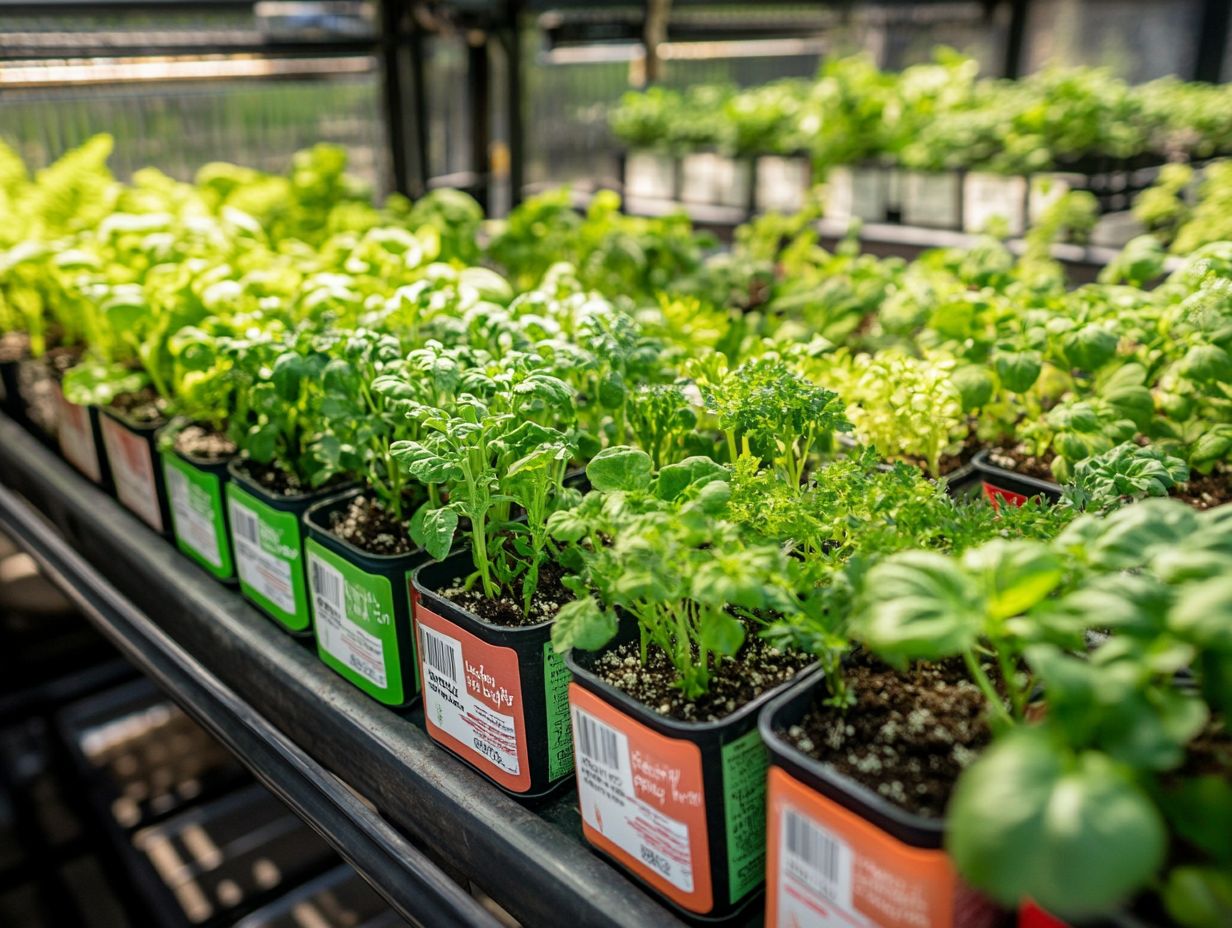
Micronutrients act as essential catalysts for crucial biochemical reactions in plants. They play a key role in achieving optimal growth and productivity within hydroponic systems.
These small but powerful nutrients influence various processes, from chlorophyll production to enzyme function. Their presence or lack thereof can profoundly impact the overall health and yield of hydroponic plants, which is why understanding hydroponic nutrient relationships is crucial.
How Micronutrients Affect Plant Development
Micronutrients play a crucial role in various stages of plant development, directly influencing both vegetative and reproductive phases, which ultimately determine your hydroponic yields.
By ensuring a proper nutrient balance, you can significantly enhance plant vigor, fruit quality, and disease resistance, leading to a more successful hydroponic gardening experience.
These essential elements, like zinc, iron, and manganese, are pivotal at different developmental stages. For example, zinc is vital for synthesizing growth hormones that affect root development and leaf formation.
In addition, iron aids in chlorophyll production, which impacts photosynthesis and overall plant health.
During the flowering phase, fine-tuning the levels of these micronutrients, including sulfur in hydroponics, can promote optimal bud formation and fruit set, enhancing your yield potential.
To maintain the right nutrient balance in your hydroponic systems, regularly monitor pH and electrical conductivity levels, and consider periodic testing of your nutrient solutions. By implementing a responsive nutrient regimen, you’ll cultivate healthier plants, ultimately maximizing both growth and productivity.
Common Micronutrient Deficiencies in Hydroponic Systems
Identifying and addressing common micronutrient deficiencies is crucial for maintaining the health and productivity of your plants in hydroponic systems.
When critical micronutrients like calcium, magnesium, iron, and zinc are lacking, you may encounter stunted growth, poor flowering, and reduced yields.
This is why using nutrient testers becomes essential for effectively monitoring nutrient levels and ensuring your plants thrive.
Identifying and Addressing Deficiencies
Identifying and addressing micronutrient deficiencies in your hydroponic plants is essential for ensuring healthy growth and optimal yields. By observing plant symptoms and understanding the specific needs of each species, you can craft a nutrient solution recipe tailored to your hydroponic system.
Watch out for signs of deficiencies like yellowing leaves or stunted growth they can be a cry for help! These symptoms may indicate a lack of crucial elements such as iron, magnesium, or calcium. Accurate diagnosis involves testing your water quality and nutrient levels with reliable kits that measure pH and electrical conductivity.
Once you’ve pinpointed deficiencies, enhancing water quality becomes paramount. Adjusting nutrient concentrations and ensuring a balanced pH promotes better absorption.
For lasting improvement, integrating organic supplements and regularly refreshing your nutrient solution can significantly boost plant health, supporting robust growth and maximizing your yield.
How to Ensure Adequate Micronutrient Levels in Hydroponic Systems
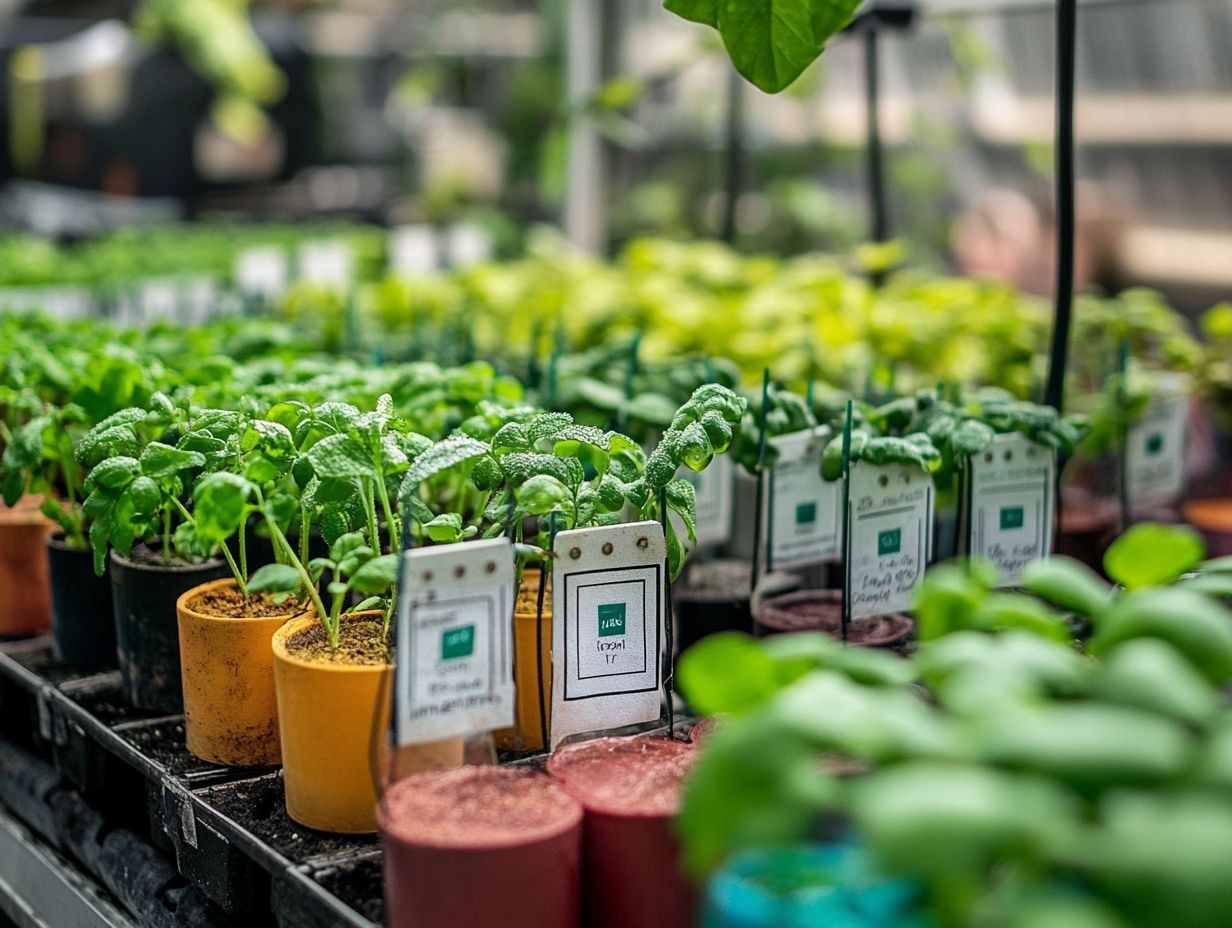
Ensuring that your hydroponic system maintains adequate levels of micronutrients is vital for fostering plant health and maximizing yields. This can be achieved through meticulous nutrient management strategies.
By employing well-balanced nutrient solution recipes and embracing environmentally friendly practices, you can cultivate an optimal growing environment that nurtures robust plant growth.
Best Practices for Maintaining Nutrient Balance
Maintaining nutrient balance in your hydroponic system is crucial for fostering healthy plant growth. You can achieve this through a series of best practices that optimize both water quality and nutrient solution recipes.
Regularly monitor and adjust based on your plants’ needs to see more productive hydroponic gardening. To achieve this, it’s crucial to understand hydroponic nutrient solutions and ensure your plants have access to the essential macronutrients and micronutrients required for growth.
To achieve this balance, focus on strategies like tracking pH and electrical conductivity (EC) levels, which are critical for nutrient absorption. Regular water changes will help mitigate the buildup of unwanted salts, and using nutrient testers will provide accurate readings to keep your solution effective.
Utilizing river water can provide a sustainable source of nutrients, but it’s important to test for contaminants to maintain a healthy growing environment.
Additionally, using advanced technologies such as UAV technology (drones used for monitoring plant health) can assist in ensuring an efficient growing process.
For example, seasoned hydroponic enthusiasts often recommend checking pH weekly, targeting a range of 5.5 to 6.5 for optimal nutrient uptake. Observations from experienced growers also highlight the importance of adjusting nutrient formulas based on growth stages, ensuring your plants receive tailored support whether they re in flowering or vegetative periods.
Frequently Asked Questions
Micronutrients are essential elements required by plants in small amounts for their growth and development. They play a crucial role in hydroponics as they are responsible for various plant functions such as photosynthesis, enzyme activity, and nutrient uptake.
Start testing your nutrient levels today for healthier plants!
What are the main micronutrients needed for hydroponic plant growth?
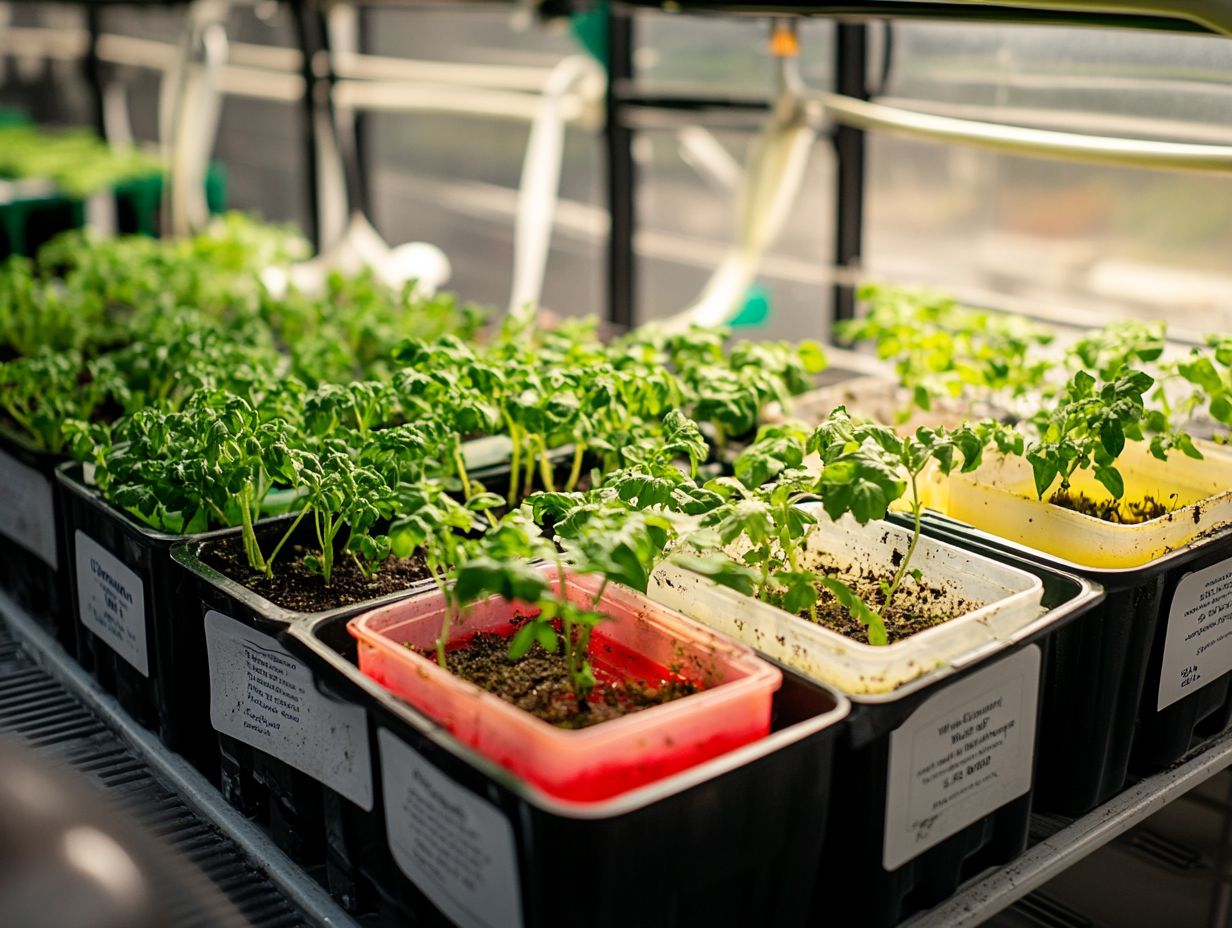
Hydroponic plants need several important micronutrients. These include iron, manganese, zinc, copper, boron, molybdenum, and chlorine. They are needed in smaller amounts than macronutrients but are essential for healthy growth.
How do I ensure my hydroponic plants receive enough micronutrients?
Use a balanced nutrient solution made for hydroponics. This will help ensure your plants get all the micronutrients they need.
Regularly test and monitor the pH and nutrient levels of the solution. This is crucial for proper micronutrient uptake.
Can I supplement micronutrients in my hydroponic system?
Yes, you can supplement micronutrients if you notice any deficiencies in your plants. Add micronutrient solutions or use fertilizers that contain them.
What are some signs of micronutrient deficiencies in hydroponic plants?
Noticing yellowing leaves or stunted growth? These could be signs of micronutrient deficiencies. Reduced fruit or flower production may also occur.
Act fast to address these deficiencies to prevent further damage to your plants!
Do different plants require different levels of micronutrients in hydroponics?
Yes, different plants may have varying micronutrient needs. Research the specific requirements of your plants to ensure they grow healthy and strong.
